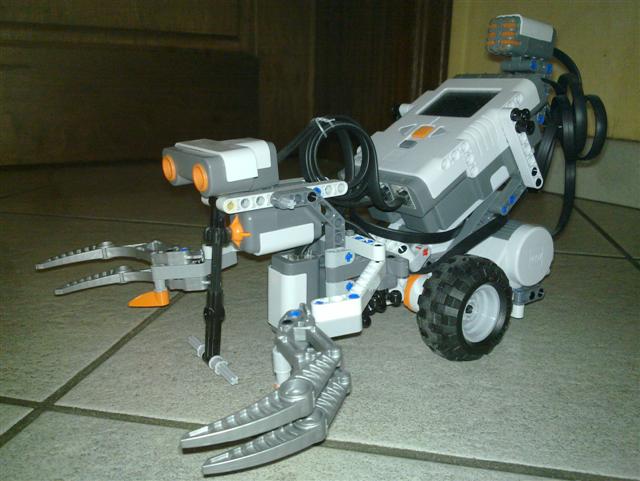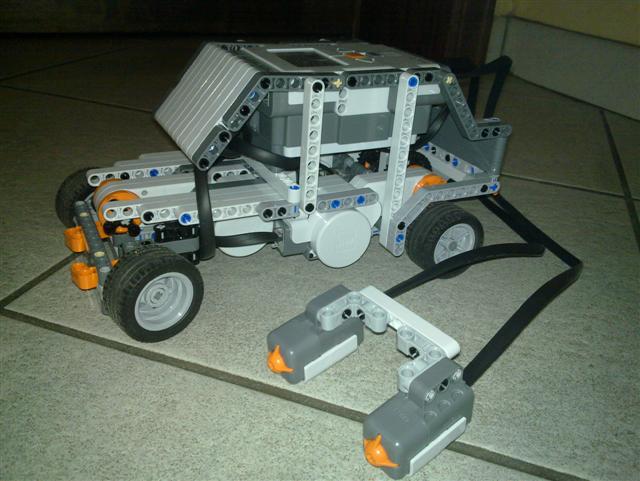
My oldest son, at the time turning 10 (and already visibly showing a lot of scientific interest), took his creative Lego designs 1 step further: enter the lovely 'LEGO Mindstorms NXT' programmable robot construction kits. I contemplated coaching a small team of likewise children to compete in the annual 'RoboCup Junior' competition. My youngest son also showed some interest, and I of course found it hard to resist conducting some exotic home experiments myself.
The official LEGO Mindstorms NXT homepage explains what entry-level robotics is all about. Sensors and actuators, connected to programmable Lego bricks, allow for demonstrable artificial intelligence. Even children are capable to set up robot brains by means of an excellent intuitive visual programming language. Resulting programs can be (wirelessly) downloaded into any physically constructed robot.
Having purchased both the (Mindstorms NXT 2.0) 8547 basic product and a 9797 education base set (plus a second rechargeable battery, power adapter, USB Bluetooth dongles, temperature sensor, and touch sensor multiplexers), our home lab could actually accommodate 2 full-fledged stand-alone robots. We eventually wanted to experiment with (mini-)swarm behavior and machine learning, but the idea was to take this one step at a time (especially considering the relatively young age of my children, who were actually owning these 'toys').
We expected some wild robotic creations gallery, whenever the time would have become ripe ...


The challenging (educational) national RoboCup Junior competition (and by extension the international RoboCup Junior competition) requires the youngest participating teams to create robotic dancers and/or engage in simplified robotic rescue missions. Imagine that: 8 to 10 year olds creating special-purpose artificial life !
This creative problem solving challenge is reminiscent of the TEDxKids spirit, tapping into the unlimited potential of children (instead of industrial age 'command and control' thinking).
These yearly events are usually hosted by Technopolis, and some sneak previews can be found on Facebook.
In 2012, I considered taking some initiative to coach a small private (as opposed to school originated/sponsored) team of kids, in case they would all be willing to collectively jump into this learning adventure. After my initial contact with previous year coaches, and awaiting the following year's preparatory workshops, I was sure there would be quite a challenge from my own coaching perspective, in addition to the already non-trivial core technical challenge for the kids. I am a project manager by profession, and I had instructed/coached a small group of same age chess whizzkids before, but my guess was this robotics challenge would require more disciplined execution (of a yet to be jointly created plan). I therefore might have asked further advice from local school teachers (perhaps also generating additional interest via class presentations about a couple of home experiments). Well, first things first, so we started by 'installing' our home lab, taking it from there. Unfortunately, my kids switched to apparently more appealing Minecraft etc. computer games not long thereafter, so let's simply await any potential robotics revival.